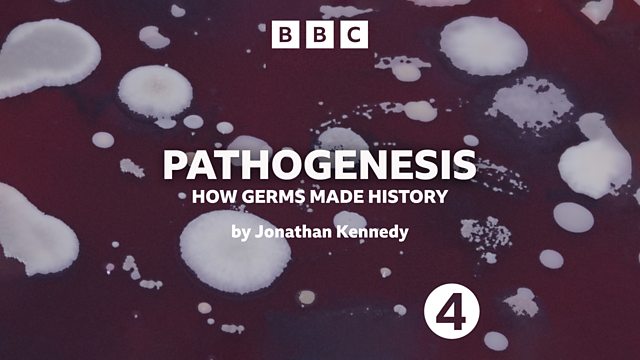
Episode 3
Sociologist Jonathan Kennedy explores how infectious diseases have impacted human society, politics and economics, from earliest times to the present day. Read by Gunnar Cauthery.
Pathogenesis: How Germs Made History by Jonathan Kennedy explores how pathogens have been the protagonists in many of the most important social, political and economic transformations in history - the demise of the great empires of Antiquity, the transformations of Christianity and Islam from small sects in Palestine and the Hijaz to world religions, the devastation wrought by European colonialism in the Americas and Africa, and the creation of the modern welfare state.
Dr Kennedy maintains that the modern world was shaped by the spread of disease, much more than by the actions of individual men and women.
He also issues a warning that pathogens are not done with us yet. “We’re living in a golden age for microbes. Population densities are increasing, people are moving more quickly around the world, the climate is changing. We’ve seen the emergence not just of Covid, but of HIV/Aids, Zika, Dengue fever, Sars and Ebola. It seems now that we won’t be able to conquer infectious diseases. Rather, by working together globally, we’re going to have to learn to deal with the new diseases that periodically arrive to threaten us.”
Dr Jonathan Kennedy is a sociologist, teaching Politics & Global Health at Queen Mary University of London.
In today’s episode, from the common cold to smallpox and measles, viruses and bacteria from Europe devastate the indigenous populations of the Caribbean and mainland America, making conquest easy. But malaria and yellow fever keep Europeans out of tropical Africa until the late 19th century.
Abridger: Libby Spurrier
Reader: Gunnar Cauthery
Producer: David Blount
A Pier production for ����ý Radio 4
Last on
Broadcasts
- Wed 31 May 2023 09:45����ý Radio 4 FM
- Thu 1 Jun 2023 00:30����ý Radio 4
